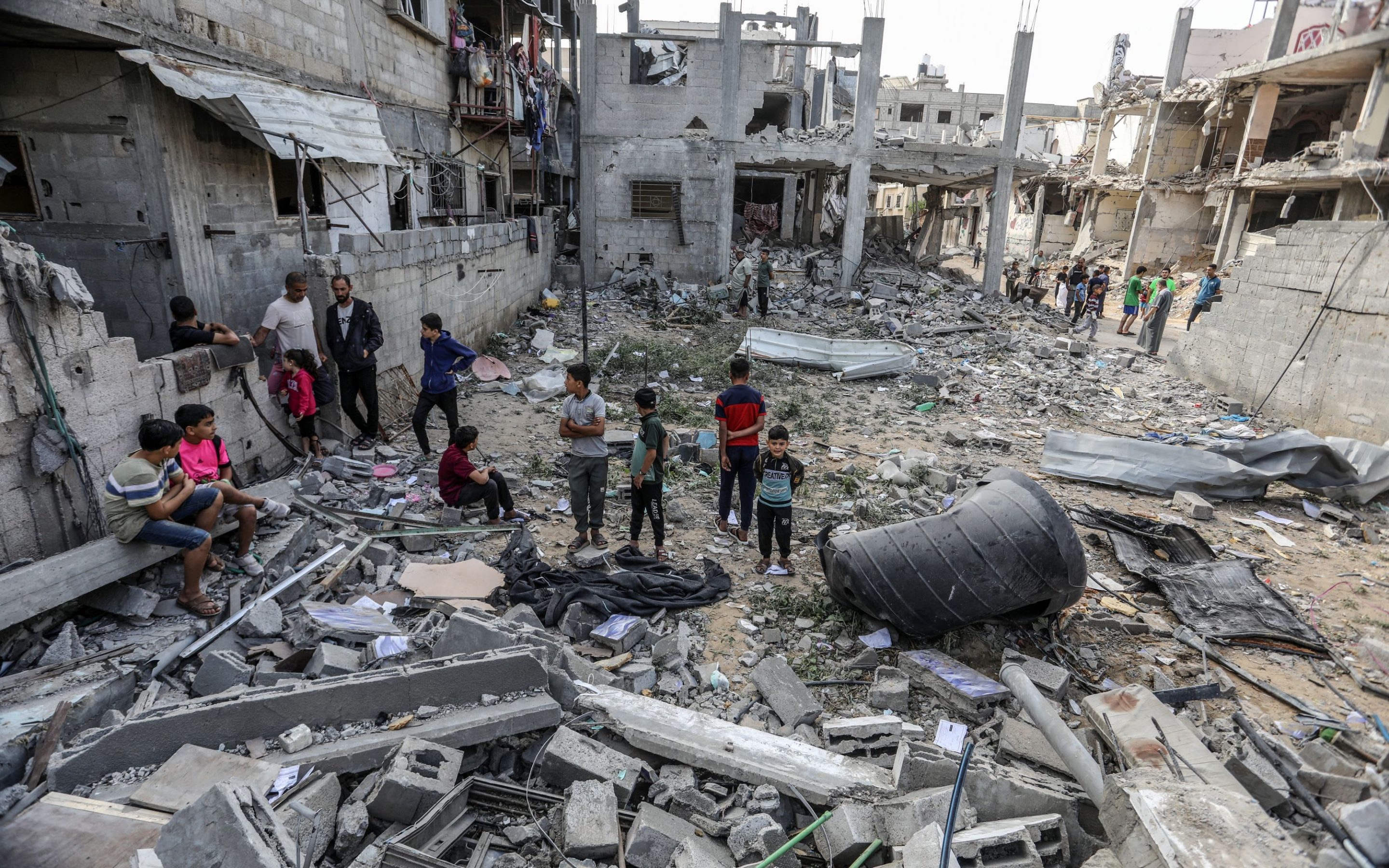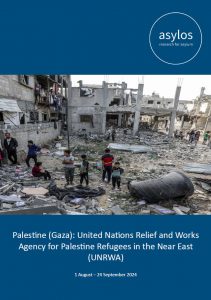
Palestine (Gaza): UNRWA (United Nations Relief and Works Agency for Palestine Refugees in the Near East), Operation and Assistance
Asylos‘ has published a new Country of Origin Information (COI) Report on “Palestine, Gaza: UNRWA (United Nations Relief and Works Agency for Palestine Refugees in the Near East), Operation and Assistance”.
The report covers:
- Living conditions (degradation incompatible with human dignity) in particular food, health, hygiene and housing
- Subsistence (material poverty)
- Applicable vulnerability (child or young person; elderly person; person with specific essential needs (for reasons other than age))
- Risk of inhuman and degrading treatment
- Ability of UNRWA to ensure minimum security conditions to any stateless person of Palestinian origin
- Proof (or inability to prove) a stateless person of Palestinian origin had habitual residence in any one sector of UNRWA’s areas of operation
- (Any risk to) returnee(s) to any one sector of UNRWA’s areas of operation.

Access the Report
Asylos presented this report on September 30th 2024 with Foundation for Access to Rights – FAR. FAR presented its litigation concerning the legal status of Palestinian asylum seekers registered with UNRWA (United Nations Relief and Works Agency for Palestine Refugees in the Near East). In particular, the Court of Justice of the European Union (CJEU) judgment, handed down on June 13th 2024 in the case C-563/22, is key for Palestinian asylum seekers in the EU, providing a legal framework for their protection when UNRWA assistance is cut off. It reaffirms the right to protection, in line with European law. The Court held:
- If the referring Bulgarian court concludes, in view of the general conditions of life in the Gaza Strip, UNRWA’s protection or assistance in its area of operation has ceased, the stateless persons of Palestinian origin should be legally granted refugee status, if no other exclusionary circumstances apply to them under EU law (Article 12(1)(b) and paragraphs 2 and 3 of Directive 2011/95) [paragraphs 85 and 86].
- Article 12(1)(a) of Directive 2011/95 should be construed to mean that the protection or assistance of UNRWA enjoyed by an applicant for international protection who is a stateless person of Palestinian origin shall be deemed to have ceased, when, on the one hand, that authority is unable — for any reason whatsoever, including for a reason connected with the general situation in the sector of the area of operation, in which the permanent residence of the stateless person was — to provide that stateless person, possibly in view of his vulnerable situation, decent living conditions corresponding to his mission, without being required to prove that he is specifically affected by this general situation due to circumstances inherent in his personal situation, and on the other hand, upon return for the same stateless person there is a serious threat to his safety, possibly given his vulnerable state, and the administrative and judicial authorities are obliged to carry out an individual assessment of each application for international protection within which the age of the person may be relevant [paragraph 90].
- UNRWA assistance or protection shall be deemed to have ceased when, for whatever reason, that authority can no longer provide for any stateless person of Palestinian origin residing in the area of operation, where that applicant was habitually resident, decent living conditions or minimum safety conditions [paragraph 90].
- Article 10(3)(b) of Directive 2013/32 obliges Member States to ensure […] updated information is obtained from various sources, such as the European Union Agency in area of asylum (EUAA) and UNHCR, as well as by the relevant international organisations for the protection of human rights, in relation to the general situation in the country of origin of the applicant or, if they are stateless, in the country of their previous habitual residence [paragraph 77].
Image Credit – Anas-Mohammed